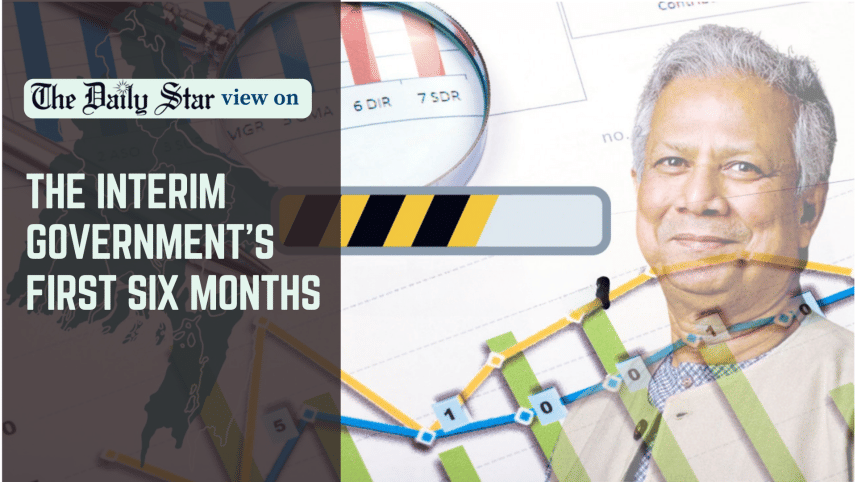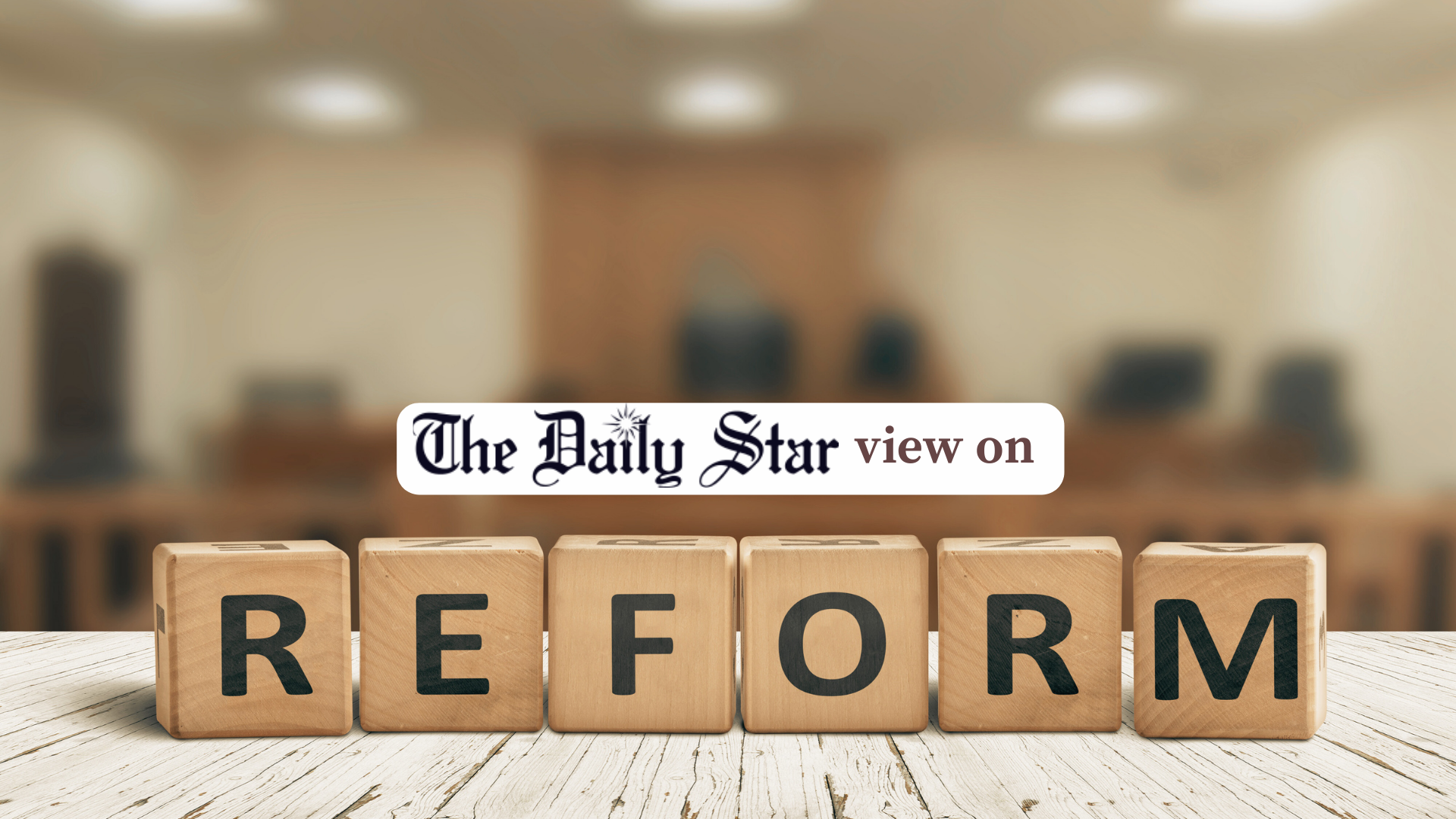Govt should now focus on reforms

The interim government has completed its first six months in office amid numerous challenges. The government, led by Professor Yunus, assumed power during a turbulent time, with unanimous support from students, the public, and major political parties. People had extremely high expectations of the government, which, naturally, was going to be difficult to fulfil. While there have been inefficiencies and weaknesses in governance, the previous regime's rampant corruption, irregularities, and destruction of major public institutions have also hindered the interim government's ability to meet those expectations. On the flipside, the government's own failure to address key concerns and major issues effectively has been disappointing. With recommendations to reform the constitution, electoral system, judiciary, civil service, police, and the Anti-Corruption Commission now in place, the government faces new challenges in implementing these reforms through political consensus.
Unfortunately, Prof Yunus and his advisory team have been unsuccessful in satisfactorily reducing the rising prices of food and essential goods. With Ramadan set to begin in March, a time when food prices typically increase, the government will face significant challenges if it does not implement effective measures to control food prices. The closure of major factories, particularly those associated with Awami League leaders or beneficiaries of the prior administration, has exacerbated the employment crisis due to job losses. Economic predictions for the year are bleak, showing little signs of improvement. Despite some reforms in the financial sector, the overall economy remains largely stagnant.
Additionally, the government's inability to improve the law and order situation in the country has been concerning. The general perception is that the government has taken this issue lightly, as evidenced by their lack of action in curbing petty crimes and rampant muggings in the capital. Even after six months of this government's tenure, the police force's morale remains low. Furthermore, the government has not been able to effectively handle the series of protests and demonstrations that have been taking place on our streets regularly. Whether it's job seekers, students, or deprived madrasa teachers, these ongoing protests and demonstrations continue to cause chaos in Dhaka, resulting in immense suffering for the citizens.
Now, as the six reform commissions have put forward their recommendations, the interim government has reached a crucial stage in fulfilling its mandate. Since it is the political parties that will decide the extent of reforms on each front—along with other stakeholders we hope—expediting consensus-building on the reform proposals is crucial. The interim government is reportedly proceeding according to the timeline set for the reform drive, with talks with political parties scheduled to begin in mid-February. While we hope the chief adviser will play a significant role in facilitating the reform dialogue, it is crucial for political parties as well to reach a consensus for the greater national interest.



 For all latest news, follow The Daily Star's Google News channel.
For all latest news, follow The Daily Star's Google News channel. 


Comments